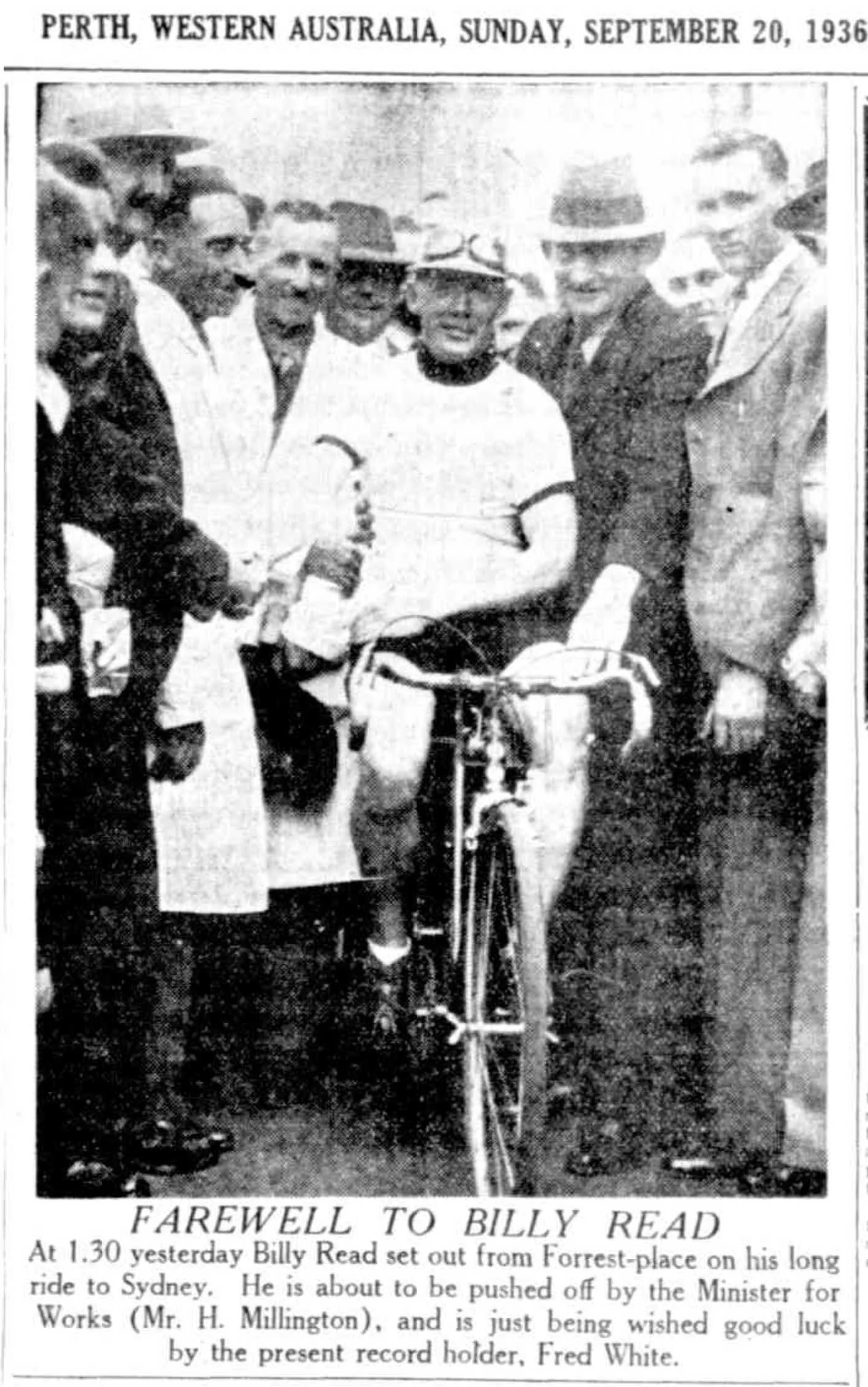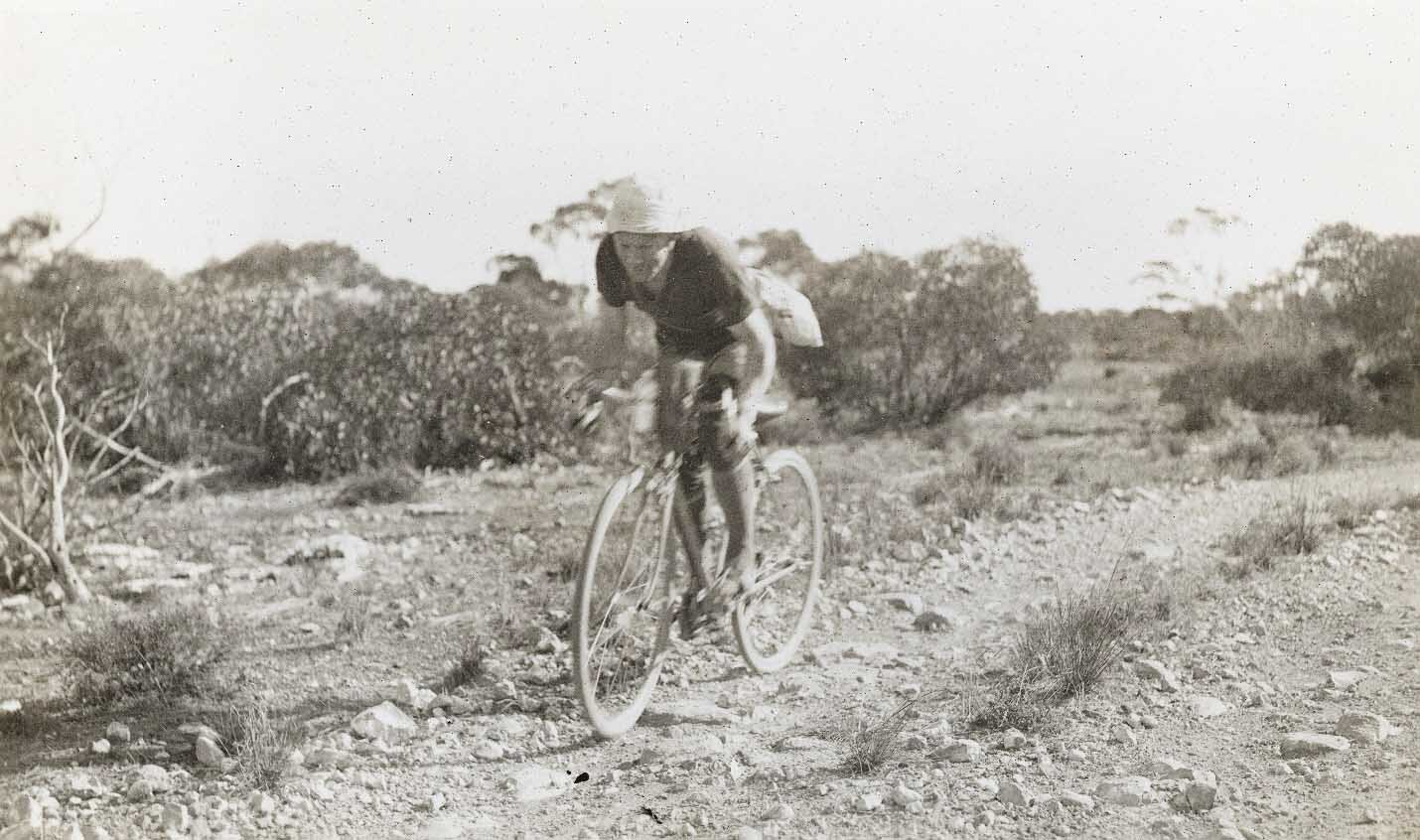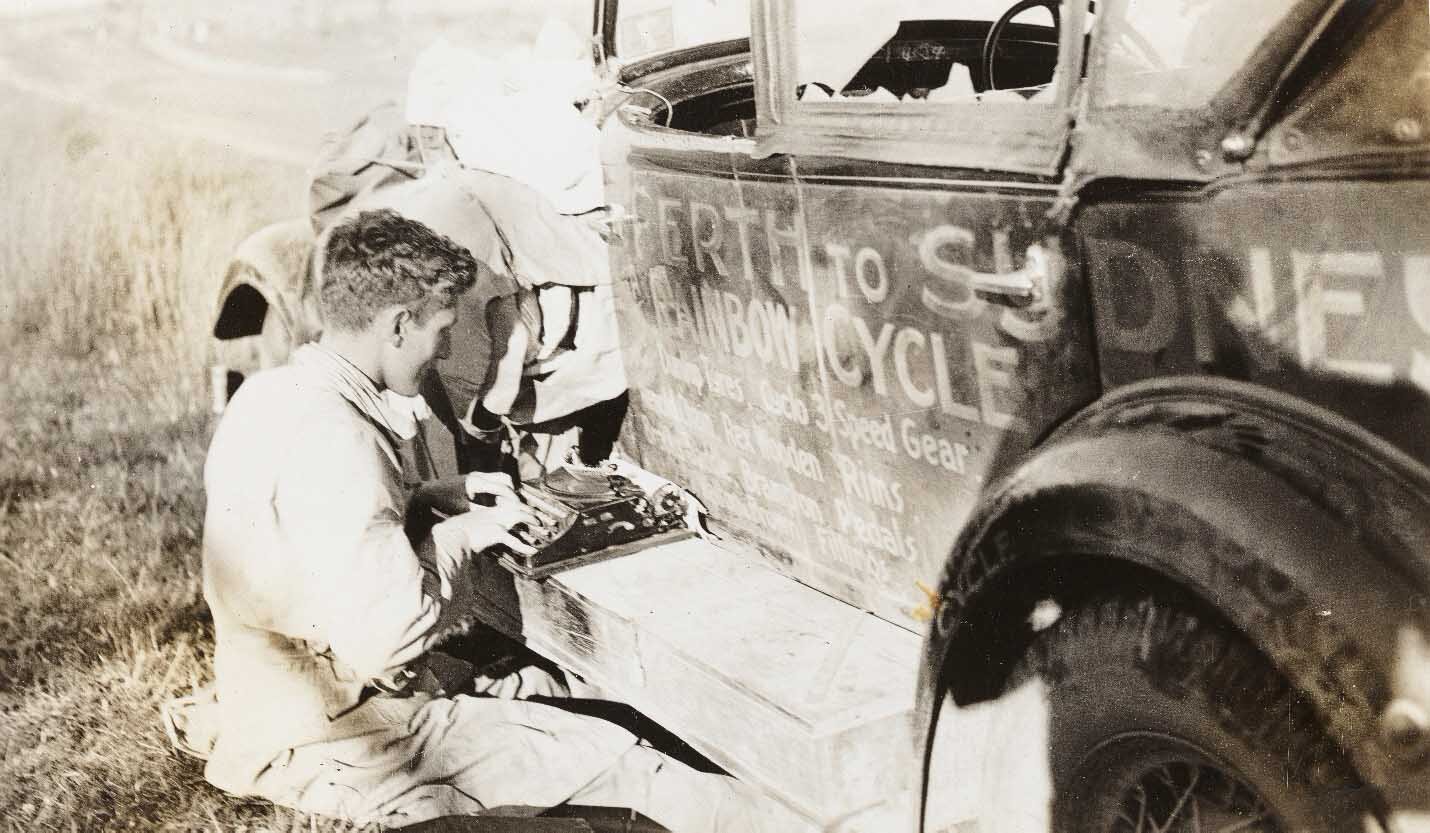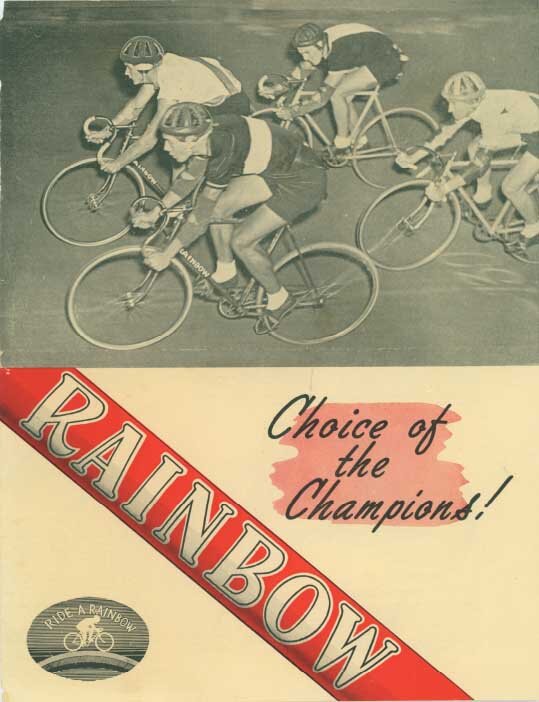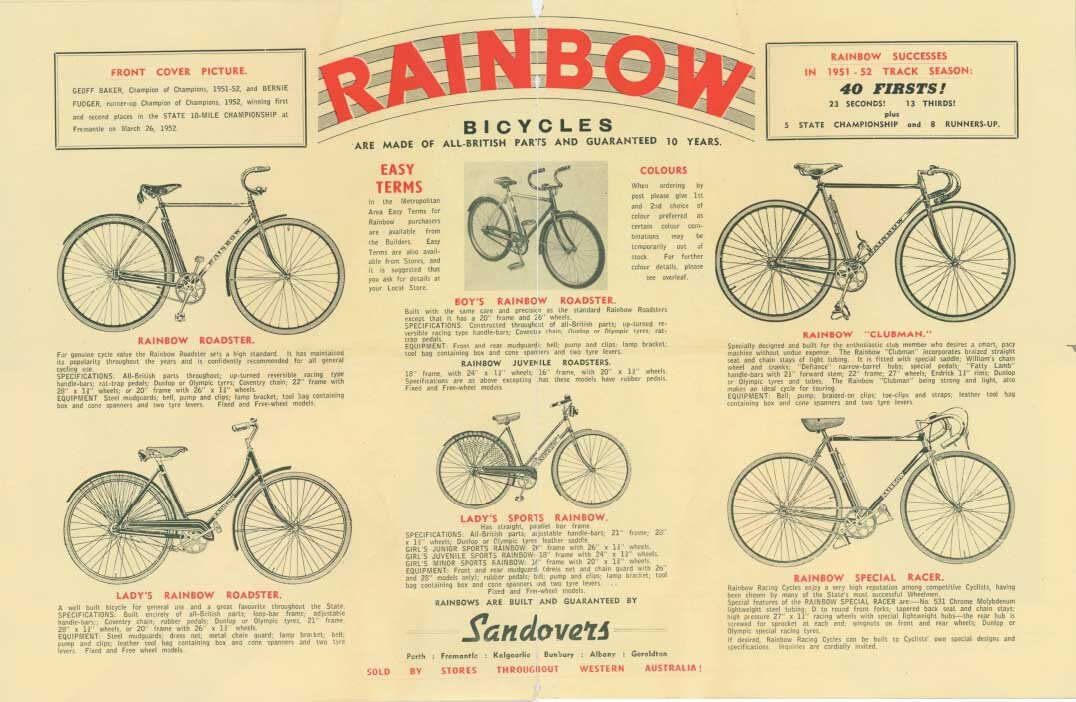Pots of Gold - Rainbow Cycles
Cover of the 1952 Rainbow catalogue.
Founded in 1866 in Adelaide Harris Scarfe was a hardware store that ultimately had shops across Australia. It was a major supplier, and manufacturer of a broad range of household, agricultural and industrial items.
Harris Scarfe’s Rainbow brand bikes were sold in stores and via catalogue. During World War II, when the Australian Government enforced price controls, it used the Harris Scarfe catalogue as the price guide.
Entering a partnership with West Australian business W. Sandover & Co in the 1930’s gave Harris Scarfe’s ambitions local clout in the WA market.
Ex-pat South Aussie William Sandover, assisted by his younger brother Alfred, had prospered when gold was discovered at Coolgardie and Kalgoorlie in the 1890s. The period saw a huge demand for machinery and all kinds of hardware which W. Sandover & Co. was able to supply.
In 1921, Alfred Sandover donated the medal bearing his name as the West Australian Football League's annual award recognising the league's fairest and best player of the regular season, a tradition still alive today.
The date at which East Fremantle football coach Ossie Prowse started with Sandovers is unknown, as is the exact nature of his relationship with them. In the late 40’s and early 50’s Ossie enthusiastically poached Perth’s top riders sponsored by other bike shops, notably Geoff Baker and Bill Gilbride who had ridden for Swansea. Riders recall being sent to Aussie Cycles on Milligan St in Perth to be measured up for an Aussie built, Rainbow branded frame. Ian McKillop remembers Ossie paying cash for equipment vouchers given to riders by Sandover’s competition in an effort to keep them out of the competitors’ shops.
One hundred percent effort
Riding a Rainbow Geoff Baker leads John McGrath and Bernie Fudger at the final of the Australian Teams Pursuit at Goodwood South Australia
The Perth built Rainbows appear to have been the exception rather than the rule - the Rainbows sold by Sandovers and their agents were not exceptional. Touted as “All British” for much of its life, the Rainbow was mass produced in South Australia from British tubing and components. The parts fitted to frame number 10591, a typical survivor, while “all British” are unlikely to have found favour with sponsored riders like Bernie Fudger or Tom ‘Tiger’ Lyons; Defiance hubs, Utility brand cranks and painted steel rims were strictly the province of the affordable transport oriented roadster.
Bikes featured a colourful rainbow decal on the seat tube inscribed “Harris Scarfe” for the South Australian market and “Harris Scarfe and Sandovers” for Western Australia. They had one or two raised “R”s brazed on the head tube. Frames and rims were brightly painted and a distinct Rainbow decal applied to the downtube. Filigree pinstriping for the forks, bicycle pump braze ons and crank oil filler were common.
The bikes were first available in WA in 1934 and in August 1935 the Rainbow bicycle range was officially “announced” in WA’s Sunday Times. At the time the average Perth man took home £211 a year. £10 bought 1 acre in Bayswater and £50 got you 5 acres in Belmont. A Rainbow bike cost £7.
Sandovers wasted no time promoting Rainbow; in 1935 the winning float in the Young Australia League’s “Youth and Motherhood Parade” was the Rainbow entrant. That same year star South Australian rider Dean Toseland broke the Perth Bunbury return record on a Rainbow.
In 1936 they sponsored Billy Read’s record breaking Perth to Sydney solo record. (Read and Gordon Jones had previously crossed the country in 1933 on an Aussie Tandem). And in 1938 the inaugural Sandovers Rainbow Ball was held - “Electric lights were festooned from the balconies, a large rainbow was painted above the stage, and pictures of cyclists were placed under the rainbow.”
The ball ran annually until at least the mid 50’s, however the Harris Scarfe name was dropped from advertising material around 1950, and in 1962 Harris Scarfe and Sandovers Ltd was taken over by Electronic Industries Ltd in a share deal as business jitters “pricked the prosperity bubble of the Brand Liberal Government”.
The Rainbow story is a marketing spin - excuse the pun - a history of bicycle promotion that shone in the shops and made pots of gold.
Despite the backing of a statewide department store, national distribution, aggressive marketing highlighting British parts, and plenty of race winners there are remarkably few surviving examples of Rainbow bicycles today.
Toby Hodgson



